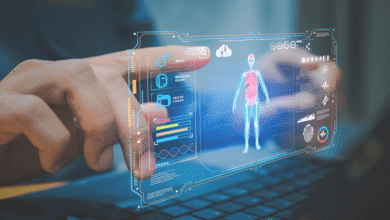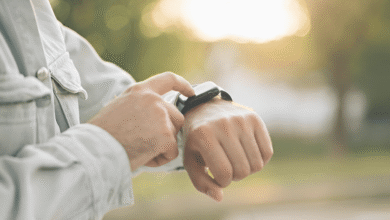How to Secure Your Health Data on Apps and Wearables
Health data security is vital Learn how to protect your sensitive medical info on health apps & wearables from breaches & misuse Stay safe.

Health data security has become a critical concern in our increasingly digital world, where fitness trackers, smartwatches, and health apps collect deeply personal information from heart rates and sleep patterns to blood pressure and mental health records. This sensitive data, if compromised, can lead to privacy violations, identity theft, or even discrimination from employers and insurers. As more people rely on these technologies for wellness and medical monitoring, understanding how to protect your health data is essential to prevent unauthorized access and misuse.
The convenience of health apps and wearables comes with risks, as many users unknowingly expose their data through weak passwords, excessive app permissions, or unsecured connections. Cybercriminals often target health information because it is highly valuable, sometimes even more than financial data. Additionally, many apps share user data with third parties, raising concerns about where this information ultimately ends up. By taking proactive steps to enhance health data security, you can safely benefit from these technologies while keeping your personal information private and protected.
How to Secure Your Health Data on Apps and Wearables
Unauthorized Access and Data Breaches
Health apps and wearables store sensitive information such as heart rate, sleep patterns, and medical history on servers or cloud platforms. If these databases lack strong encryption or cybersecurity measures, hackers can breach them, exposing personal health data. Cybercriminals may also intercept unsecured transmissions between devices and apps, especially when using public Wi-Fi or weak Bluetooth connections. Once stolen, this data can be sold on the dark web or used for identity theft, insurance fraud, or even blackmail.
Data Misuse by Third Parties
Many health apps share user data with advertisers, analytics firms, or other third-party companies, often without explicit consent. Some apps bury these data-sharing practices in lengthy privacy policies that users rarely read. In some cases, collected health information is aggregated and sold to marketers, researchers, or even employers. This raises ethical concerns, as users may not realize how their data is being monetized or that it could potentially be used against them for example, in employment decisions or insurance premium adjustments.
Excessive App Permissions and Weak Security Practices
Some health apps request unnecessary permissions such as access to contacts, location, or camera that have no legitimate connection to their functionality. These permissions can expose additional personal data if the app is compromised. Additionally, many users fail to enable basic security measures like strong passwords, two-factor authentication (2FA), or regular software updates, making their accounts easier to hack.
Best Practices for Securing Health Data on Apps and Wearables
Choose Reputable Apps and Devices
Not all health apps follow strict security protocols. Before downloading an app or purchasing a wearable, research the developer’s privacy policies and security measures. Look for apps that comply with regulations like Health Insurance Portability and Accountability Act (HIPAA) or GDPR (General Data Protection Regulation), which enforce strict data protection standards. Reading user reviews and checking for past security incidents can also help identify trustworthy options.
Enable Strong Authentication Methods
Weak passwords are a common entry point for hackers. Always use strong, unique passwords for health-related accounts and enable two-factor authentication (2FA) whenever possible. Biometric authentication, such as fingerprint or facial recognition, adds an extra layer of security. Avoid using the same password across multiple platforms, as a breach in one service could compromise others.
Regularly Update Software and Firmware
Developers frequently release updates to patch security vulnerabilities. Ensure that your apps, smartphone OS, and wearable firmware are always up to date. Automatic updates can help maintain the latest security protections without manual intervention. Outdated software is a prime target for cyberattacks, as hackers exploit known flaws that have not been fixed.
Limit Data Sharing and Permissions
Many apps request unnecessary permissions, such as access to your camera, microphone, or location. Review and restrict these permissions in your device settings to minimize data exposure. Be cautious when syncing health data with third-party apps, as they may not have the same level of security. Opt out of data-sharing features unless absolutely necessary.
Use Encryption for Data Storage and Transmission
Encryption converts data into a coded format, making it unreadable to unauthorized parties. Ensure that your health apps and wearables use end-to-end encryption for data transmission. If storing health records on your phone or cloud services, use encrypted storage solutions. Some wearables allow local data storage instead of cloud syncing, reducing exposure to online breaches.
Be Wary of Public Wi-Fi and Bluetooth Connections
Public Wi-Fi networks are often unsecured, making them risky for transmitting sensitive health data. Avoid accessing health apps or syncing wearables on public networks unless using a virtual private network (VPN). Additionally, disable Bluetooth when not in use to prevent unauthorized access to your wearable device.
Monitor for Suspicious Activity
Regularly check your health app accounts for unusual activity, such as unrecognized logins or data changes. Some services offer activity logs that track access attempts. If you notice anything suspicious, change your passwords immediately and report it to the app provider. Early detection can prevent further breaches.
Understand Data Deletion and Backup Policies
Many users forget that their old health data remains stored even after deleting an app. Review the app’s data retention policy and manually delete stored information if no longer needed. Additionally, back up important health data securely, either offline or in an encrypted cloud service, to prevent loss due to device failure.
The Role of Legislation in Health Data Protection
Governments and regulatory bodies have introduced laws to safeguard health data. HIPAA in the U.S. ensures that medical providers and certain health apps protect patient information. Similarly, GDPR in Europe gives users control over their data, including the right to access or delete it. While these regulations improve security, not all health apps fall under their jurisdiction. Consumers must remain vigilant and choose services that prioritize privacy compliance.
Read More: How Red-Light Therapy Devices Are Being Used at Home
Conclusion
Health data security is not just an option it’s a necessity in today’s tech-driven healthcare landscape. As apps and wearables continue to collect increasingly sensitive information, users must take proactive steps to safeguard their personal data. By implementing strong passwords, enabling two-factor authentication, carefully managing app permissions, and staying informed about potential risks, you can significantly reduce vulnerabilities. Remember, the convenience of digital health tools should never come at the expense of your privacy.
Ultimately, health data security is an ongoing responsibility that requires both awareness and action. While no system is completely immune to breaches, following best practices ensures you’re doing everything possible to protect your information. Stay vigilant about software updates, be selective about the apps you use, and always prioritize encryption for data storage and transmission. By taking these precautions, you can confidently embrace the benefits of health technology while keeping your sensitive data out of the wrong hands. Your health information deserves the highest level of protection make sure you’re providing it.
FAQs
Why is health data a target for hackers?
Health data contains sensitive personal information, which can be sold on the dark market or used for identity theft and insurance fraud.
How can I check if a health app is secure?
Look for compliance with HIPAA or GDPR, read privacy policies, and check for past security breaches or negative reviews.
Is Bluetooth safe for wearable devices?
Bluetooth is generally secure if encrypted, but hackers can intercept signals. Disable Bluetooth when not in use to reduce risks.
Can employers access my health data from wearables?
Unless you voluntarily share data, most employers cannot access it. However, some workplace wellness programs may request access.
What should I do if my health data is breached?
Immediately change passwords, notify the app provider, monitor for identity theft, and consider freezing your credit if sensitive data is exposed.









